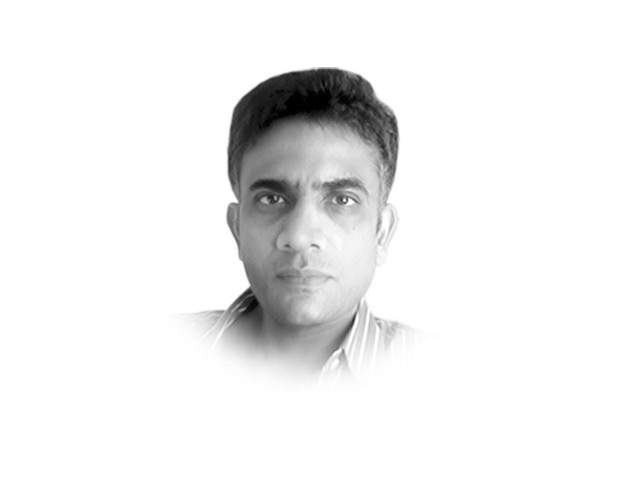Measuring poverty in India
You could not have access to or money for shelter, education, health or food & still be considered not poor in India.

The writer is a columnist. He is also a former editor of the Mumbai-based English newspaper Mid Day and the Gujarati paper Divya Bhaskar
aakar.patel@tribune.com.pk
Some think, in my opinion wrongly, that this problem can be addressed purely by more reforms. The more India opens itself to foreign money, the more transparent its systems of government are, the more efficient and less corrupt its bureaucracy, the better for its economy. That is the logic. None of this is exceptionable, though all of it assumes that the high growth path is something for which only the government is responsible.
I think we should also look elsewhere to seek an answer to why we cannot grow. I did not write about why this was so in my earlier piece because this brings us into the realm of culture. Economists have little regard for this sort of thing and their work assumes that the environment is everything.
There are almost no studies (Harish Damodaran’s is one) on India’s mercantile culture and the baniya ethic. Though it is often said that India’s entrepreneurial base is big, the evidence is that it is caste based and small. Among Muslims, it is even smaller, and that explains to me the sorry state of Bangladesh’s and Pakistan’s economy.
The second aspect of India’s economy is the lack of mobility. Being middle class in India is essentially a lottery of birth.
This is, of course, true of most nations and most cultures. Europe has an aristocracy, most obviously in England with its landed rich.
But in few places, is it as pronounced as in India. Here, fate doesn’t land us either in wealth or in the middle class. It sends us directly into a hell with almost no access to escape. The state has no resources to help you get out.
Even if you believe the government’s figures, a third of India is poor. The fact is that the government’s numbers are based on calorie consumption for immediate sustenance and food. Indians who earn Rs23 a day in villages and Rs29 a day in cities are not poor. A monthly income of Rs674 in villages and Rs860 in cities is thought to be sufficient. This compares with Rs22,000 a month in the United States.
In that sense, the poverty line of India is cruel. It is merciless and doesn’t allow the majority of Indians any money for shelter or access to education or health care or sanitation or anything else that civilised nations would consider as essential as food.
You could not have access to and money for any of those things listed above and still be considered not poor in India. You could have no money to travel anywhere for work or education and not be considered poor in India.
The argument people who draw this line have is that if it were raised to a more humane standard, perhaps 70 per cent of Indians would be regarded poor. But what is wrong with admitting that?
Peter Ong, a friend of mine from Australia, who consulted a newspaper in Mumbai, would often notice the poor of the city. “What’s her future?” he would ask of some urchin on the road as we drove past. At first, I was defensive and would mumble something about how it was all changing in India. But that was not the right answer. The child had no hope and would spend her life and die in poverty of a truly frightening kind.
Almost none of the work done historically by the church in Europe on poverty and education is done by religion in India. Our wealthy have little interest in philanthropy, though Azim Premji and Nandan Nilekani can lead us to think this is changing.
And the truth is that the Indian media is totally disinterested in poverty. This is because the reader has no interest in this — and as someone who has edited newspapers in three languages for many years, I can speak with some authority. To assume that, in such a place, politicians can legislate us back into the high-growth orbit is, to my mind, delusional.
Published in The Express Tribune, May 19th, 2013.















COMMENTS
Comments are moderated and generally will be posted if they are on-topic and not abusive.
For more information, please see our Comments FAQ